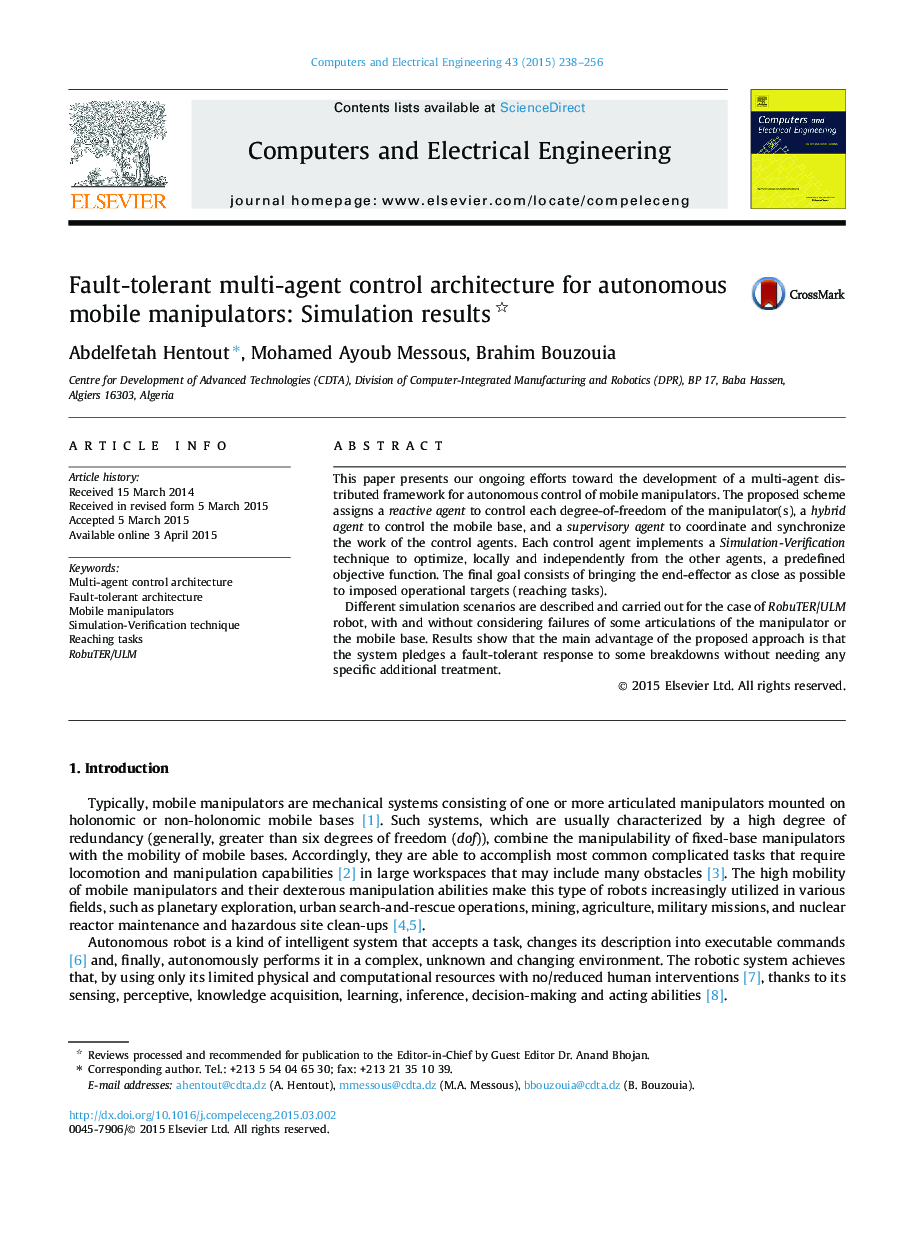| Article ID | Journal | Published Year | Pages | File Type |
|---|---|---|---|---|
| 453989 | Computers & Electrical Engineering | 2015 | 19 Pages |
•We propose a generic multi-agent control architecture for mobile manipulators.•Robot complex mathematical models are not required, so computing time is reduced.•The strategy is fault-tolerant to breakdowns without needing specific treatments.•The proposed approach works in 3D environments with high dof mobile manipulators.•Accuracy of the proposed approach is good comparatively to classical approaches.
This paper presents our ongoing efforts toward the development of a multi-agent distributed framework for autonomous control of mobile manipulators. The proposed scheme assigns a reactive agent to control each degree-of-freedom of the manipulator(s), a hybrid agent to control the mobile base, and a supervisory agent to coordinate and synchronize the work of the control agents. Each control agent implements a Simulation-Verification technique to optimize, locally and independently from the other agents, a predefined objective function. The final goal consists of bringing the end-effector as close as possible to imposed operational targets (reaching tasks).Different simulation scenarios are described and carried out for the case of RobuTER/ULM robot, with and without considering failures of some articulations of the manipulator or the mobile base. Results show that the main advantage of the proposed approach is that the system pledges a fault-tolerant response to some breakdowns without needing any specific additional treatment.
Graphical abstractFault-tolerant multi-agent control architecture for autonomous mobile manipulators.Figure optionsDownload full-size imageDownload as PowerPoint slide
